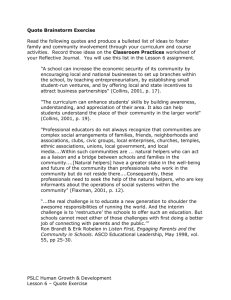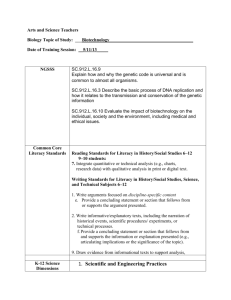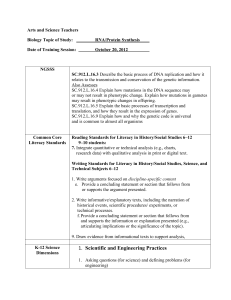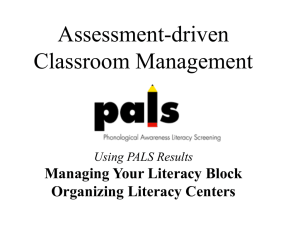Classroom Management PowerPoint
advertisement
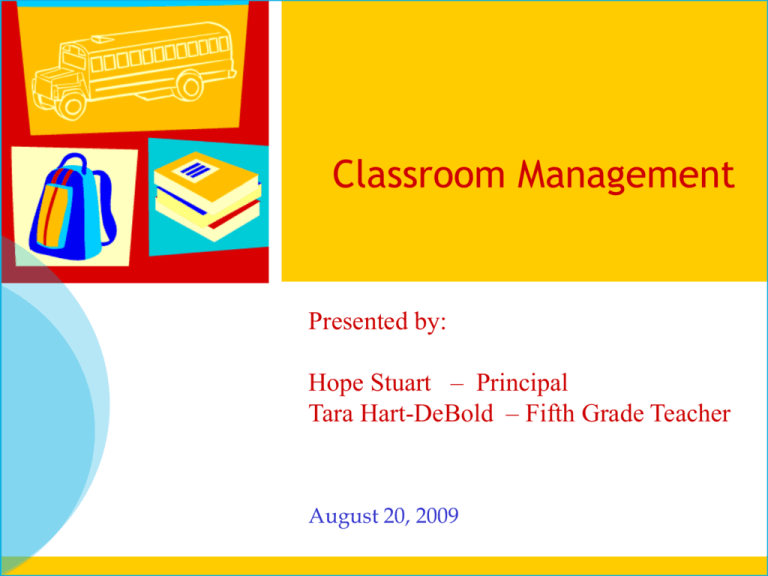
Classroom Management Presented by: Hope Stuart – Principal Tara Hart-DeBold – Fifth Grade Teacher August 20, 2009 The ability of teachers to organize classrooms and manage the behavior of their students is critical to achieving positive outcomes. Although sound behavior management does not guarantee effective instruction, it establishes the environmental context that makes good instruction possible. Disruptive classroom behavior is a significant reason why teachers leave the profession. The inability of teachers to effectively manage classroom behavior often contributes to the low achievement of at-risk students and to their excessive referrals for special education. National Comprehensive Center for Teacher Quality Dec. 2007 Do Now: Find your group mates using the stick provided. Discuss the reasons you feel behavior issues occur. The person whose birthday is closest to May 6 (Hunter’s birthday) will write these ideas down on the index cards provided. Let’s take time to discuss: It’s All About Being Proactive, Not Reactive! Establishing procedures that are consistent and familiar encourages students to be self-managers and therefore reduces discipline issues. This is KEY to establishing a Literacy Collaborative classroom. •Students know what is expected of them and want to be successful. •Students must know from the very beginning how they are expected to behave and work in the classroom. •There is relatively little wasted time, confusion, or disruption. •Students are deeply involved with their work, especially with academic, teacher led instruction. •The climate of the classroom is work-oriented but relaxed and pleasant. Procedures must be: Explained Rehearsed Reinforced Honing Habits: It takes about 26 days to make or break a habit, so start the very first day of school establishing good habits with your students. The easiest way to accomplish this is by having your students help you establish about 5 positively stated rules that will be followed in your classroom. Meeting Area An example of a whole class behavior management system is: Go for the Green. Go for the Green! Each student must follow our classroom rules in order to stay on green for the entire day. 1st Notice-Blue A verbal warning will be given. 2nd Notice-Yellow The student will take a 5 minute time-out. 3rd Notice-Orange The student will miss recess time. 4th notice-Red The student’s parents will be contacted. An effective way to encourage students to have ownership over their classroom environment is to design a system for classroom helpers. Here is just one example of how this can be done… Line Leader Center Helpers Chair Helpers Substitute Weather Calendar Mailers Lunch Count Janitor Attendance Material Managers (M & M’s) Proactive Procedures: •Paper Management-collecting and passing out work, no names •Bathroom Breaks •Pencil Problems •Student Seating-desk or carpet •Calling on Students Tricky Transitions: Many behavior issues occur during unstructured times of the day, including transitioning from one activity to another. Ineffective transitions not only invite behavior problems but eat up valuable instructional time. Transitions add up: If 4 minutes is wasted each day, that becomes 20 minutes a week, which translates to 800 minutes or 13 hours of lost instructional time a year. Tricky Transition Techniques: Table Points Count Down Clean-up Time-bell Recess time-they waste your time, you take away their time. Center Areas: With Literacy Collaborative, comes centers. Centers encourage students to be self-managers but can be a nightmare if not managed correctly. The key is to be prepared as a teacher and establish expectations for each center with your students. Workboard (describes each child's center activities for the hour) Text Writing Center: Literacy Collaborative Style Text ABC Center Text Math Center Classroom Library Reading Center Tips to Take with You… We know we have shared a great deal of ideas with you today. Do you have any ideas to share with your colleagues at this time? If so, write them down on your exit ticket. Take a couple of minutes to jot down some ideas you would like to incorporate into your classroom on the postit provided. Did You Know: It takes 26 days to make or break a habit. 4 minutes a day of wasted time can translate to 13 hours of missed instructional time. The most lavishly appointed classroom may turn into shambles if routines for using it have not been established. Classroom management is KEY to student achievement.

